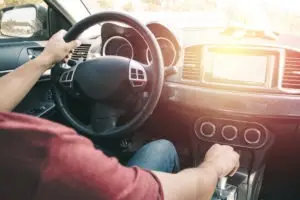
Drug usage can impact an individual’s ability to operate a vehicle in California safely. For this reason, individuals with drug addiction that drivers can face criminal charges under California Vehicle Code Section 23152(c): Driving While Addicted.
The Simmrin Law Group can help you learn about VC 23152(c) charges. Use this article to review:
- The Definition of Drug Addiction in California
- The Penalties for Driving While Addicted
- The Legal Defense for VC 23152(c) Accusations
If you or a loved one is facing a charge of driving while addicted in California, you should speak with an experienced criminal defense attorney from the Simmrin Law Group as soon as possible.
Driving While Addicted in California
Residents of California may be prosecuted under VC 23152(c) if they:
- Operated Their Motor Vehicle
- At Such a Time as They Were Addicted to a Drug
You should note that this charge does not require an individual to be present under the influence of a drug when operating a vehicle. Merely suffering from an addiction is enough to lead to VC 23152(c) charges.
Additionally, VC 23152(c) charges do not apply to individuals participating in an approved narcotics treatment program.
Defining Drug Addiction
It is useful to understand California’s definition of drug addiction when discussing VC 23152(c) charges. An individual may be considered addicted to drugs if they are:
- Physically Dependent on a Substance to the Point That Deprivation Leads to Withdrawal Symptoms
- Tolerant to the Effects of the Substance and in Need of More Potent Doses to be Impacted
- Emotionally Dependent on the Substance with a Compulsive Need to Continue Using It
All of these factors must be true for an individual to be considered addicted to a drug in California. Do you have questions about the California Vehicle Code or the charges you face? If so, let a defense lawyer at Simmrin Law Group answer them for you and build a defense to those charges on your behalf.
Results of a Conviction for Driving While Addicted
The penalties for driving while addicted vary depending on whether it is a first-time or subsequent offense. A first-time conviction in the court system in California can lead to fines, along with:
- License Suspension: At Least Six Months
- Drug Education Class: At Least Three Months
- Informal DUI Probation: Up to Five Years
- Jail Time: Up to Six Months
These penalties grow more severe for subsequent DUI convictions. Note that convictions for driving under the influence of alcohol or drugs all count as DUI violations. This means that if a driver is arrested, the driving while addicted charge would be a second DUI offense.
Drug DUIs
We mentioned earlier that individuals could be charged with driving while addicted even if they are not currently under the influence of drugs. Vehicle Code §23152(f): Driving Under the Influence of Drugs is used to prosecute this action.
This charge only applies if an individual is found to be using drugs when pulled over.
Defenses for Driving While Addicted Charges
You can get legal advice on handling a driving-while-addicted accusation by contacting a Los Angeles criminal defense lawyer. Getting professional help quickly allows your lawyer to thoroughly investigate your situation. Based on their findings, a lawyer could work to show:
You Are Not Experiencing a Drug Addiction
As we mentioned, California has a specific definition of drug addiction. If you do not meet the full qualifications for drug addiction, you cannot be convicted under VC 23152(c).
You Are in an Approved Drug Treatment Program
California makes exceptions for drivers enrolled in an approved drug treatment program at the time of a driving-while-addicted arrest. If you are seeking help with your addiction, you could be able to avoid a VC 23152(c) conviction.
Stand Up to VC 23152(c) Charges with a Legal Professional
California Vehicle Code Section 23152(c): Driving While Addicted charges can lead to fines and other serious penalties. Get help resolving these charges in your favor by contacting the Simmrin Law Group.
You can easily reach our Los Angeles criminal defense lawyers for a FREE consultation. Call our office or complete our online contact form to get started. Driving while addicted in California is a serious crime you should not ignore.
Let Simmrin Law Group fight for your rights, so you are not facing high penalties and lengthy jail time.
